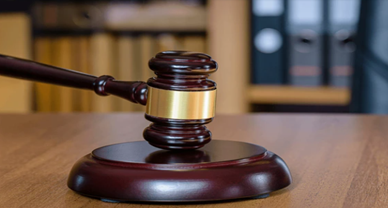Beauty and the Bill : Lessons from the Baba Ramdev Case and Regulating False Advertising in the Personal Care Industry
Misleading marketing is not a new phenomenon in India, over the years, brands have employed various marketing techniques which successfully have helped them escape the wrath of the government and the general public. However, the Baba Ramdev Case brought o light several critical issues in existing legislation . This led the centre to issue new guidelines on the subject providing for greater accountability in the realm of personal care and influencers
This blog shall examine false advertising in the context of the Indian Beauty and Wellness Industry , 2022 rules , the Baba Ramdev Case and the new 2024 guidelines.
Understanding False Advertising in the Beauty and Wellness Industry
“Use for 7 days for glowing skin “ , “ this product made my me grow my hair overnight “ , social media is rife with claims like these. Such claims set unrealistic expectations and indirectly nudge the buyer to give in to impulse shopping. Around 75% of all marketing takes place through digital mediums as per recent statistics. Most people don’t even realise that a seemingly innocent video of an influencer sharing her favourite products is actually a well- thought-out partnership deal with her patron brands.
Legislation Pre-2024
Before the new rules came into place , misleading marketing practices were governed by several different laws, namely:
- The Consumer Protection Act, 2019
- The Drugs and Magic Remedies (Objectionable Advertisements) Act, 1954
- The Cable Television Networks (Regulation) Act, 1995
- Advertising Standards Council of India (ASCI) Guidelines
- 2022 Guidelines issued by CCPA
Indian Medical Associations & Anr. Vs. Union of India & Ors 2022 (the Baba Ramdev Case)
Background: During the COVID-19 pandemic , Patanjali launched “ Coronil” a product that it claimed was WHO-approved and could cure corona. Later during its marketing campaign the brand ran ads which made malicious statements against allopathic medicine questioning their efficacy. This prompted the petitioners to file a case about the disparaging advertisements.
This case opened the door for the judiciary to examine existing legislation for advertisements including but not limited to those making medical or health-related claims.

Judgement: The court acknowledged the role of endorsers and held them to be just as liable as the brand in cases of false and misleading advertisements. It highlighted the need of manufacturers, distributers and endorsers to act with a sense of responsibility so as to not erode the trust of the consumer.
The court noted that complaints on non-compliance with existing laws were not adequately taken forward, which then resulted in poor enforcement .
To address the existing vacuum in the law along with aligning with the provisions in the Guidelines, 2022 the court directed the central government to set up a portal where advertisers shall upload a self declaration before the advertisement is aired on any form of the media. The Order attempts to mainly impose self accountability by advertisers.
The 2024 Influencer Guidelines
The guidelines were introduced to strengthen accountability in the advertising arena , particularly influencer marketing. The key provisions are as follows:
- Mandatory Self-Declaration
It is compulsory for every advertiser or advertising agency to submit a self-declaration certificate before the publishment or airing of an advertisement. This shall cover advertisements over all print, electronic, and digital media.
- Key Requirements for Advertisers
An authorised representative must submit the declaration on the Government Portal. Details such as the product or service being advertised , advertisement script, and media format be it TV, radio, print, or online must be mentioned. Video , audio files or URLs should be submitted for verification.
- Influencer and Brand Responsibilities
Influencers must clearly mention paid partnerships using labels such as #Ad, #Sponsored, #PaidPartnership and not in an unambiguous manner (where it is hidden and not in the caption or hashtags). Influencers, brands and advertising agencies have been placed on an equal footing in the view that they will be held equally liable for false advertising and misleading claims .
- Penalties-
Strict action in the form of penalties and fines will be taken against advertisers who fail to comply with rules.
Challenges and loopholes of the new guidelines
- Requirements exclusively for new advertisements
The press release mandates that all advertisements published on or after 18th June, 2024 are required to submit the self declaration this means that the rule is not applicable and fails to address those advertisements that have already been published. Irrespective of the fact that the advertisements preceding the press release may have garnered millions of views and have been in wide circulation, the self declaration shall not apply to them.
- Uncertainty in determining paid content
Influencers may cleverly disguise partnerships with the brand by subtly showing it in their grwm videos (videos where the influencer shows all the products that he/she uses while getting ready to go somewhere) and repeatedly adding it in the background of theirInstagram posts , this kind of content comes off as more organic and indirectly nudges the viewer to purchase the product. Social media platforms are also unable to identify this nature of paid promotion.
- Increased regulatory costs
The guidelines apply to large corporations and small businesses in the same altitude. This creates an uneven playing field and may cause an unnecessary burden on a small business already struggling to stay afloat.
- International compliance
Digital platforms operate internationally and showcase content from a wide array of nations . Presently , only advertisers in India are required to follow the guidelines which may leave domestic players at an undue disadvantage.
- Digital behavioural ads
Many platforms employ retargeted advertisements where the user is shown an ad based on their browsing history. It is unclear if the self declaration is applicable to ads that follow the consumer from one platform to another. The platform that will be responsible for this too is unclear .
- Free speech and Stifling creativity-
There are concerns that the guidelines imposed may hamper online free speech and discourage creativity. Independent creators are worried that this might discourage their growth as creators that have just started out might not be able to procure most products without a sponsorship nor would they have the resources to produce a self-declaration. This might be due to lower connectivity , reading writing skills and access to legal recourse.
- Insufficient Government Infrastructure
The government lacks a centralised, automated system to check whether the advertisements actually are in compliance with the rules. It is still reliant on the complaints made by the general public and others.
The ASCI is already overburdened and might not have the infrastructure to actively take action on each violation.
The evolving landscape of misleading advertisements in the digital space in India is reaching new heights every year, though the 2024 guidelines are a step in the right direction, there is still scope for further improvement. Focusing on intelligible differentia so that small players are not discouraged whilst bringing previously published advertisements under the umbrella of regulation is necessary. Fair and transparent advertising is the way of the future.
Author: Sailee Naik, in case of any queries please contact/write back to us via email to chhavi@khuranaandkhurana.com or at Khurana & Khurana, Advocates and IP Attorney
References
https://www.storyboard18.com/brand-marketing/between-creativity-and-compliance-how-influencers-circumvent-ad-rules-50880.htm
https://www.researchgate.net/publication/338679669_How_Age_and_Disclosures_of_Sponsored_Influencer_Videos_Affect_Adolescents’_Knowledge_of_Persuasion_and_Persuasion
https://search.app/9aXbeo9TXdxVYgxu5
https://search.app/QZwso5pVjoWM5jtA7
https://search.app/hv3FcYYwxgUBe4LY6
https://new.broadcastseva.gov.in/digigov-portal-web-app/Upload?flag=iframeAttachView&attachId=140786277
https://search.app/2WuaBHt3P1SiToRb6
https://natlawreview.com/article/self-declaration-mechanism-misleading-advertisements-house-built-sand
https://www.legalserviceindia.com/legal/article-18250-regulating-social-media-influencers-a-legal-perspective-in-india.html
